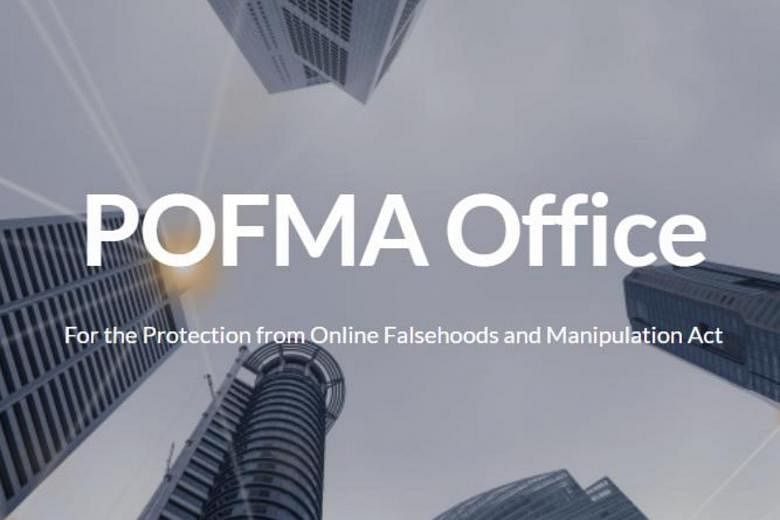SINGAPORE - The permanent secretaries for all 16 ministries and several portfolios in the Prime Minister's Office (PMO) will exercise the powers of the ministers under the Protection from Online Falsehoods and Manipulation Act (Pofma) during the election period.
Under Pofma, when a Writ of Election is issued, ministers cease to have the power to issue orders under the Act, but these powers may be exercised by an alternate authority - a senior civil servant who the respective ministers have to designate beforehand. The election period, as defined under the Act, begins on the day the Writ is issued and ends at the close of Polling Day.
Notices of the appointments of alternate authorities were published in the Government Gazette on Monday (June 8), the same day that the Elections Department set out safe polling and nomination procedures should a general election be held during the Covid-19 pandemic.
The Gazette notices published on Monday did not give any specific date for when the next election period would be.
Alternate authorities have been appointed by all 19 Cabinet ministers, including Prime Minister Lee Hsien Loong, to cover their various portfolios and responsibilities.
An alternate authority has also been appointed by Senior Minister of State for Communications and Information Janil Puthucheary, who is the minister-in-charge of the Government Technology Agency and public sector info-communications technology and related engineering.
The permanent secretary and second permanent secretary at the Ministry of Communications and Information (MCI) - currently Ms Yong Ying-I and Mr Joseph Leong respectively - were both appointed alternate authorities by Minister S. Iswaran.
Mr Leong will be the alternate authority should Ms Yong be unable to perform her role.
Pofma was passed by Parliament in May last year after over a year of public consultation, including a Select Committee hearing, and gives ministers the power to order the removal or correction of online falsehoods, and to order accounts or sites that spread untruths to be blocked.
A person who disagrees with a minister's decision can have his appeal heard in the High Court as early as nine days after initiating a challenge to the minister.


